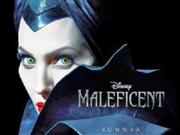|
|
||||
|
by Richard Jack Smith  I’ll be honest, Musicology really isn’t my field. Up to now, my writing has extended to short stories, poems, screenplays, wrestling articles as well as reviews for feature films and novels. This will be my first attempt at analysing a film score. So, there’s no better place to start than with what I consider to be the best score of 2014 so far. Maleficent by James Newton Howard delivers above and beyond what one normally expects from this composer. He normally writes with tremendous depth of expression, which allows untapped emotions to rise accordingly. Having listened to the majority of his work from 1988’s Saigon/Off Limits to the more recent After Earth, I can tell you that Howard abandons all of his synthetic tendencies (Michael Clayton, anyone?) and uses the orchestra to its fullest capabilities here. [Please note: track titles may contain spoilers.] In 1959, paying customers got their first look at Maleficent in Sleeping Beauty. A sorceress with pitch-black horns and a pale/chalky green complexion, she was evil personified. In 2014, production designer/director Robert Stromberg has, along with actress Angelina Jolie, completely reworked this character. She’s no longer the cut-and-dried villain of Disney mythology. Composer George Bruns’ original assignment under Walt Disney featured several highlights, including an exceptional theme for Flora, Fauna and Merryweather, the three good fairies. However, in Maleficent’s case, there was far less to get excited about (for me). Her musical identity fell short of the necessary thematic development. Therefore, Howard has been presented with an amazing opportunity to right this wrong. Does he disappoint? Not for one moment. Maleficent’s inner struggle plays into every note composed by Howard. I just love the mischievous about face around the 3:12 mark in “Queen of Faerieland.” Initially, you might think such a shift in tone would be capricious. However, this pretty much sums up the seeming dualities of this fascinating creation. To give her only one shade or colour misses out on all the subtleties. Whether her emotional state receives lovely string counterpoints (Howard’s forte) or aggressive horns, the effect conveys layers of ugliness and beauty. There are times, especially around the 5:00 minute mark into “Maleficent Suite” that Howard captures such incidental and elusive grandeur, it recalls Stewart Copeland’s beautiful wilderness theme from Surviving the Game. Unlike Hilary Hahn’s solo violin accompaniment to Howard’s The Village, there are smaller doses of said instrument for Maleficent. Tracks like “Aurora in Faerieland” at 3:36 suddenly blossom with a quick turn from the strings before the choir and piano close out matters in fine style. One can find highlights in any good James Newton Howard score, whether it’s the “Helicopter Chase” from The Fugitive, “The Wreck” from Unbreakable or “The Great Eatlon” featured in Lady in the Water. However, Maleficent distinguishes itself by remaining thematically complex and emotionally specific. |
||
|
© 2024 - ReelTalk Movie Reviews Website designed by Dot Pitch Studios, LLC |



